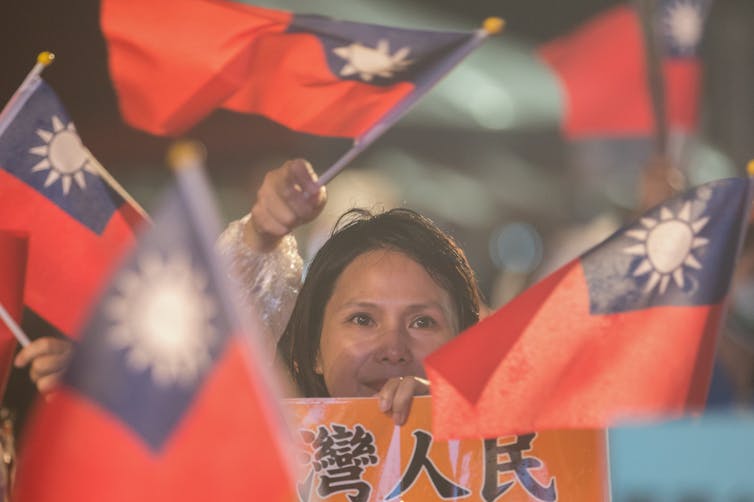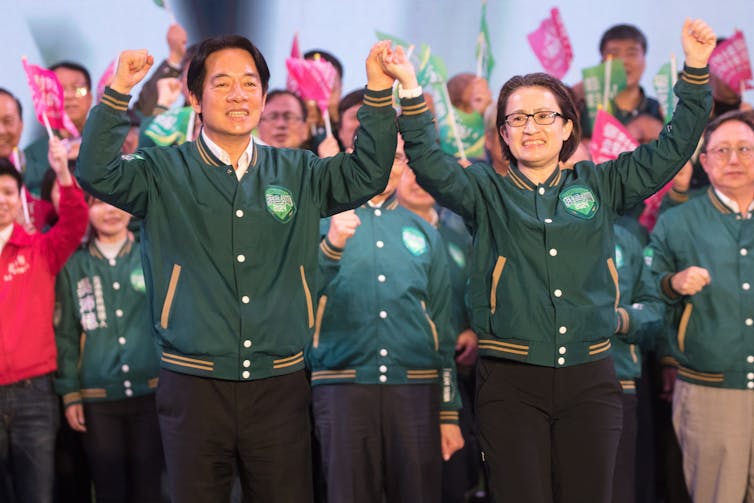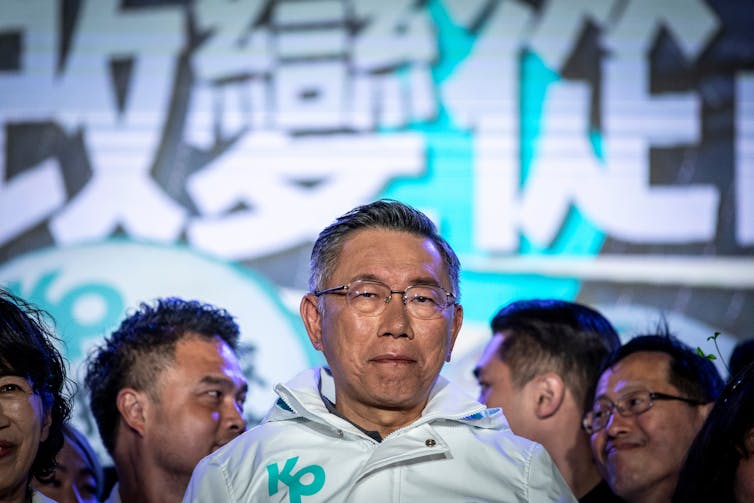Taiwan election 2024: how presidential candidates left women voters unimpressed
Taiwan election 2024: how presidential candidates left women voters unimpressed

Lai Ching-te (also known as William Lai) of the Democratic Progressive Party was elected as the new president of Taiwan in January, beating Hou Yu-ih and Ko Wen-je of the Kuomintang and Taiwan People’s Party respectively.
Lai picked Hsiao Bi-khim to be his running mate. Hsiao, who had been Taiwan’s de facto ambassador to the US since 2020, is the second woman to become vice president in Taiwan.
Seeing women on the tickets for major political seats is not unusual for Taiwanese voters. Taiwan’s national legislature has almost attained gender parity, significantly higher than the global average, and in 2016 it elected a woman as president (Tsai Ing-wen).
Nevertheless, no presidential candidate in the recent election offered concrete plans for how to achieve gender equality in society and, perhaps as a result, did not attract a great deal of support from women. Instead, candidates who chose women as their vice-presidential running mates appeared to do so as a political gesture aimed at attracting support from women, rather than displaying any real intent to advance gender equality in Taiwan.

Misogyny throughout the campaigns
As Taiwan geared up for the election, all three candidates spoke about the importance of gender diversity. But none of them truly campaigned for gender justice, at least not with any real conviction.
Ko advocated for the legalisation of surrogacy and gender-neutral bathrooms. Hou campaigned for incorporating gender diversity and equality in school curriculum’s and workplaces. Lai offered no nuances as his platform did not differ much from his opponents.
However, the Modern Women’s Foundation and other leading women’s organisations demanded that attention be paid to gender-based violence, the gender pay gap, state-subsidised care and, among other things, women’s ministerial representation. Their efforts were to no avail as none of the candidates offered a concrete solution to any of these problems.
The election also scored high for misogynistic remarks from candidates. Since being elected as the mayor of Taipei ten years ago, Ko has regularly made sexist comments – for example, after a rally in July 2023 where a woman held a sign listing his remarks, his supporters harassed her online. Ko refused to take responsibility for his own statements, saying: “What has that got to do with me?”
Hou also has a history of objectifying women. At a press conference in 2018 where Hou launched a ride-sharing policy, he complimented the woman host’s appearance and age, saying she had an “unsafe face”. He proceeded by saying that ride sharing would allow men like him to make friends with young women.
Appealing to women voters
Needless to say, the main electoral battles in January did not focus on women’s issues. They mainly concentrated on relations with China and on the cost of living. Women make up half of Taiwan’s population, yet their issues were largely ignored.
This lack of appeal was reflected in voting. Based on our own analysis of Taiwan’s Election and Democratization Study (which collects data of voting behaviour and changes in democratic values), all three candidates struggled to secure support from women.
Lai, the eventual successor, stood out as the only candidate to receive a positive response from women. But even then, only 40% of women without clear political preferences (characterised here as “median voters”) said they voted for him.
More than half of women voters expressed unfavourable views towards Ko and Hou. Ko particularly lagged in women’s support, despite enjoying considerable backing from men.
Further analysis revealed an interplay between gender, education, age and candidate preference. Among college-educated men, 63% favoured Ko, compared with only 49% of college-educated women. And among those aged between 30 and 39 years, men favoured Ko to a significantly greater degree than women.
This gender gap suggests that highly educated women, and those in their 30s, were more critical of Ko than men. The differences in support based on gender, age and education were less pronounced for Hou and Lai.
Hou’s supporters are predominantly older, with no significant differences in gender across various ages or educational levels. On the other hand, Lai attracts slightly more college-educated women than men.

Selective running mates
Polling taken before running mates were announced suggested a neck-and-neck competition, with no candidate demonstrating a substantial lead. This tight race underscored the importance of median voters.
Research suggests that, while vice president picks do not usually sway the electorate broadly, they can appeal to particular voter segments. Therefore, Lai and Ko both made strategic choices of women to be their vice presidential picks.
But did this strategy pay off? The popularity of both Lai and Ko with women voters saw no improvement. In fact, Ko’s support among women continued to decline even after introducing his running mate. His challenge in securing women’s support shows that putting a woman on the ticket was not enough to counteract his misogyny and boost women’s support.
Many challenges on gender inequality and injustice await Lai. He campaigned by prioritising other issues such as care for the elderly and the minimum wage. But even these issues cannot be addressed without accounting for gender.
Domestic needs like this can only be resolved by systematically evaluating and incorporating the interests and needs of women.![]()
Shan-Jan Sarah Liu, Senior Lecturer (Associate Professor) in Gender and Politics, The University of Edinburgh and Li-Yin Liu, Assistant Professor in the Department of Political Science, University of Dayton
This article is republished from The Conversation under a Creative Commons license. Read the original article.
Không có nhận xét nào: